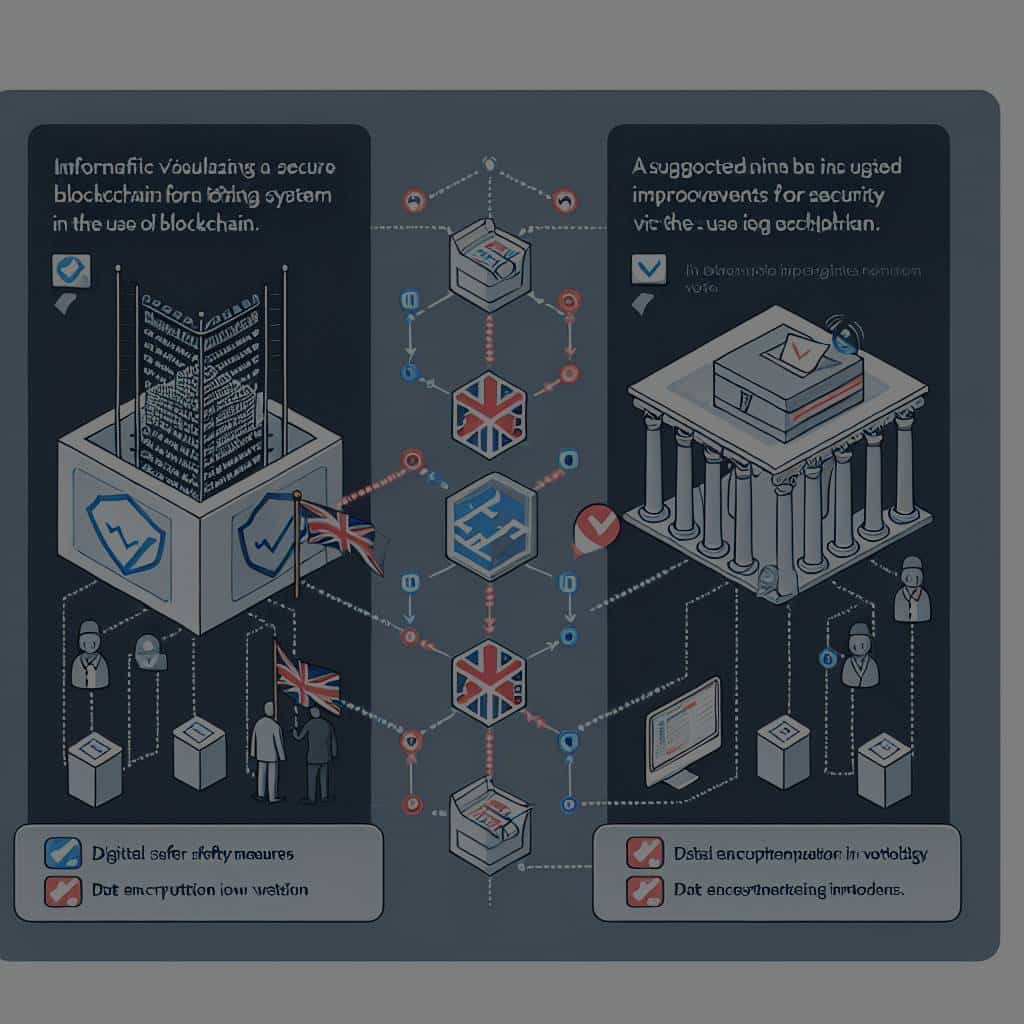What Is the Potential of Blockchain for Secure Voting Systems in the UK?

Elections are the lifeblood of any democratic system. The voting process, therefore, is crucial in upholding the tenets of democracy. However, the methods of voting have often come under scrutiny for their lack of transparency, susceptibility to manipulation, and outdated mechanisms. In the UK, the debate on how to improve this essential democratic process rages on, with technology being viewed as a key driver for change. Among the most promising technologies that could revolutionise voting is blockchain.
Understanding Blockchain Technology
Blockchain technology is a decentralised digital ledger that records transactions across multiple computers. It promotes transparency, security, and scalability – traits that are highly needed in a voting system.
Also to see : How Do UK Travel Agencies Create Custom Itineraries Using Big Data Analytics?
At its core, blockchain technology uses a protocol known as consensus. This is a set of rules and procedures that all participants in a network follow to validate new transactions. In a blockchain-based voting system, this means every voter, vote cast, and the overall election results are validated by the majority of participants.
The blockchain process has been proven to be very secure. It is resistant to alteration and fraud due to its distributed nature. Once data is recorded on a blockchain, it cannot be changed without the agreement of the majority of the network, making it a robust and reliable technology.
Have you seen this : What Are the Impacts of Virtual Reality on UK Property Staging Businesses?
Blockchain-Based Voting Systems
A blockchain-based voting system utilises the principles of blockchain technology to record votes. Instead of using paper ballots or electronic voting machines, voters cast their votes digitally, and these votes are then stored securely on a blockchain.
An effective blockchain voting system should have a two-fold approach: it should be accessible enough for voters to use conveniently, but also robust and secure enough to prevent any fraud or security breaches. Blockchain technology can offer these benefits, making it a promising tool for future voting systems.
By leveraging blockchain technology, voting can become a much more accessible and straightforward process. Voters would be able to cast their votes online, from the comfort of their homes or any other location. This could increase voter turnout, especially among younger demographics and those unable to reach polling stations.
However, while the accessibility factor is important, it is the security aspect that truly sets blockchain apart as a potential game-changer for voting systems.
Security Features of Blockchain Voting Systems
Blockchain voting systems offer unparalleled security. The decentralised and immutable nature of blockchain provides a level of security that traditional voting systems struggle to match.
Voters’ data is securely stored and cannot be altered once it has been inputted, creating a transparent and verifiable trail of votes. The use of cryptographic algorithms in blockchain technology also ensures that votes cannot be tampered with once they have been cast. Each vote is linked to the voter in a way that protects their identity but still allows for their vote to be verified.
Moreover, blockchain technology can effectively counter common voting issues such as double voting. Once a vote is recorded on the blockchain, it cannot be duplicated or deleted. This, coupled with the use of digital identities, can ensure that each voter can only vote once, thereby preserving the integrity of the election process.
Scalability and Efficiency of Blockchain Voting Systems
Beyond security, blockchain can significantly enhance the efficiency and scalability of voting systems. Traditional voting methods, such as paper ballots, are time-consuming, labor-intensive and prone to human error. Electronic voting machines, while faster, still present issues such as susceptibility to hacking and malfunctioning.
Blockchain technology, on the other hand, can handle large volumes of data effectively and quickly. The voting process can be streamlined, with results available almost instantly after the voting period ends. This not only makes the process more efficient but can also increase trust in the system, as the results are transparent and can be verified by anyone.
The Path Ahead: Implementing Blockchain in the UK Voting System
The potential of blockchain for voting systems in the UK is vast. However, it’s crucial to recognize that implementing a technology as complex as blockchain will require careful planning and robust regulatory frameworks.
For blockchain voting to become a reality, the UK government would need to invest in creating a secure, user-friendly platform for voters. This would involve not only technical infrastructure but also comprehensive education campaigns to ensure voters understand how to use the system.
The potential benefits of blockchain voting are clear – enhanced security, improved efficiency, and greater voter participation. But it’s crucial that the implementation of this technology be approached with caution.
In conclusion, while blockchain offers a promising solution to many of the challenges facing the UK’s voting system, it is not a magic solution. It will require careful planning, significant investment, and rigorous testing before it can be confidently rolled out. However, with hard work and dedication, the UK could soon lead the way in leveraging blockchain technology for secure, efficient, and transparent voting.
Implementing Blockchain for Large Scale Elections
Implementing blockchain technology for large scale elections, such as those held in the UK, presents a significant challenge. The task of creating a secure, scalable, and user-friendly online voting platform is a mammoth one. However, given the security, transparency, and scalability of blockchain-based voting, the potential benefits far outweigh the challenges.
To build a robust blockchain-based electronic voting system, a strategic and well-structured plan is necessary. Key considerations include creating a digital identity system for voters, setting up a secure and scalable blockchain network, and developing user-friendly interfaces for casting votes.
Moreover, blockchain technology can be combined with other technologies, such as biometrics or smart contracts, to enhance the functionality and security of the voting system. For instance, smart contracts could be used to automate the vote counting process, eliminating human error and boosting efficiency.
Moreover, to ensure the success of such a system, the UK government would need to conduct thorough testing, undertake comprehensive audits, and run smaller-scale trials before fully implementing the technology on a national level. Public trust is another crucial aspect to consider. The government would need to ensure transparency in the system’s operation and invest significantly in public education campaigns.
Conclusion: A Vision for the Future of Voting in the UK
Looking ahead, the potential of blockchain technology for secure voting systems in the UK is immense. With its inherent features of transparency, security, and scalability, blockchain-based voting could enhance the democratic process, making it more accessible, efficient, and trustworthy.
However, the adoption of blockchain voting is not a straightforward task. It involves a host of complexities, from creating a secure and user-friendly platform to ensuring public trust in the new system. It also requires a robust regulatory framework to ensure the technology’s proper and ethical use.
In conclusion, while the road to blockchain voting is full of challenges, it also offers the prospect of a more secure and efficient democratic process. It’s essential to approach this journey with careful planning, continuous learning, and a willingness to adapt. With these in mind, blockchain could well herald a new era in the UK’s voting system, providing a more secure, transparent, and inclusive platform for democracy.
